

EIC HISTORY BOOK
80 years of continued success
Celebrating its 80th anniversary in 2023, the Energy Industries Council (EIC) has had an incredible journey, starting with a meeting of 13 engineering business leaders in London in 1943. We are proud of our significant contributions to the energy sector and optimistic about the future. This EIC History Book honours eight decades of continued success, innovation, and commitment to the global energy supply chain.

EIC Rio Office, Brazil


EIC SOUTH AMERICA
25 Years of Building Energy Connections
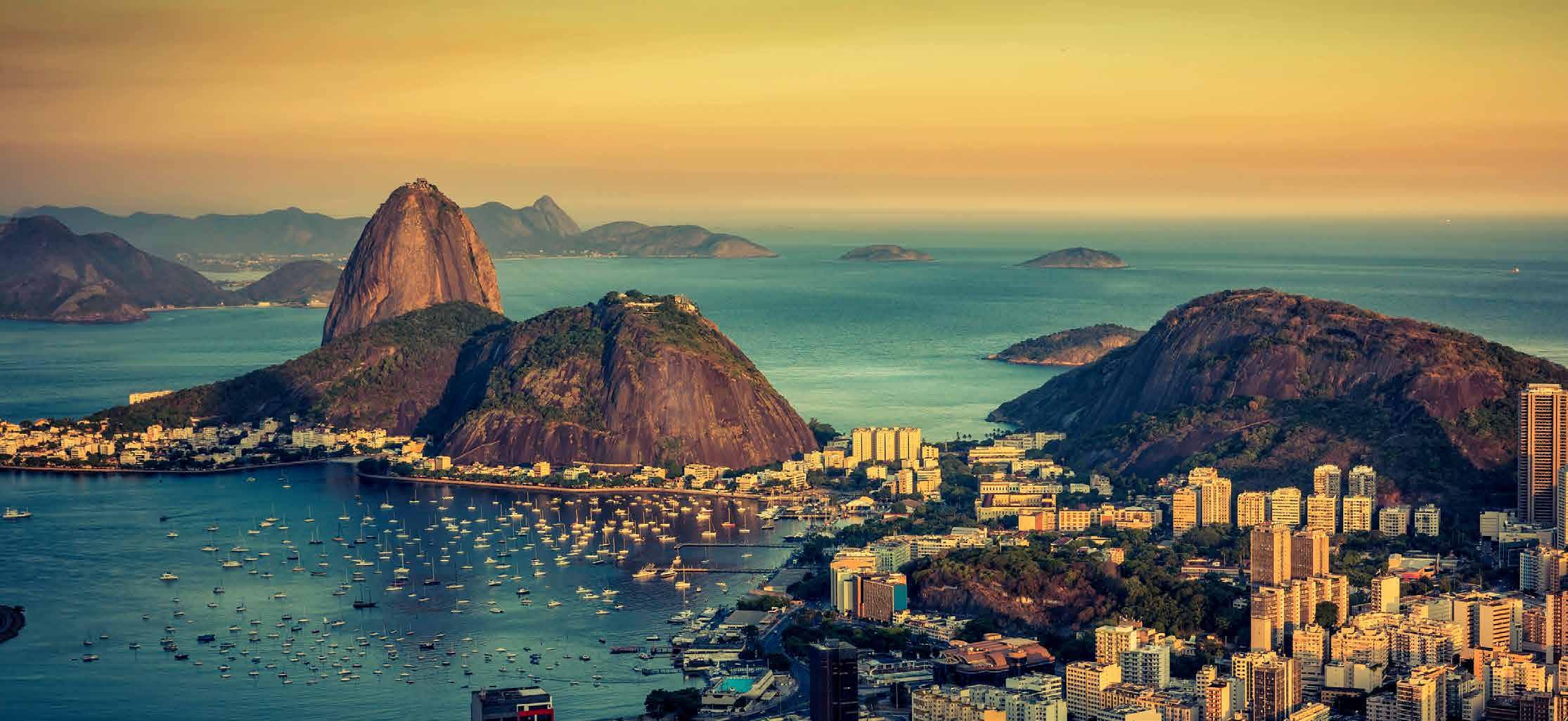
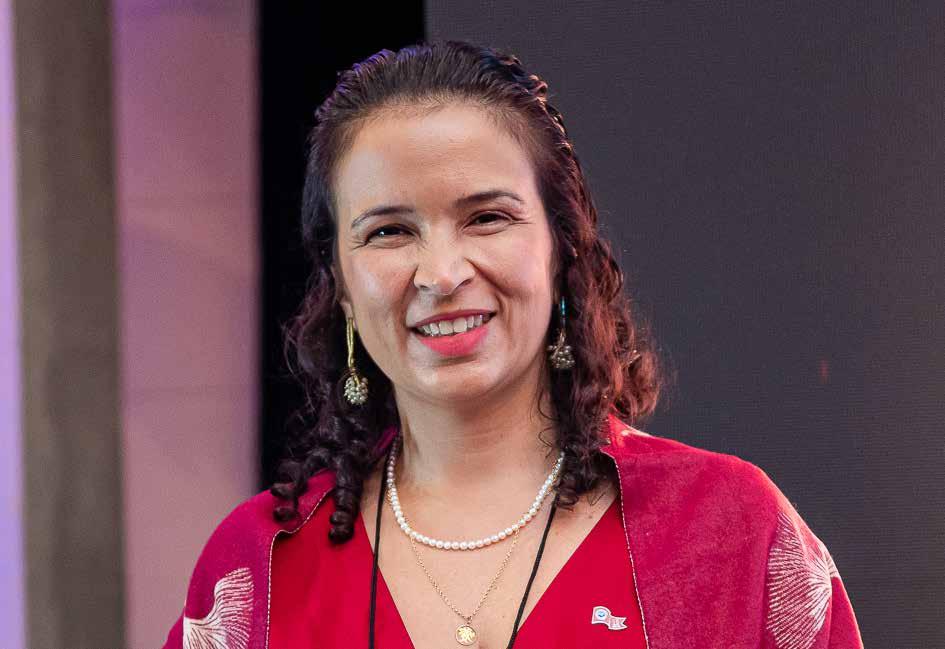
1940 -1950
Beginnings in a Changing World
The story of the Energy Industries Council in South America begins in the turbulent years following the Second World War, when the global energy map was being redrawn. In 1943 a small group of British engineering firms joined forces under the name Council of British Manufacturers of Petroleum Equipment (CBMPE). Their purpose was simple but ambitious: to ensure that British technology would remain visible and competitive in the rapidly expanding world of petroleum production.
At that time Latin America was an energetic frontier. Venezuela stood among the world’s top oil producers, Trinidad and Tobago supplied more crude than Saudi Arabia, and new wells were being drilled from Colombia to Peru. To explore these opportunities, CBMPE dispatched one of its earliest trade missions in 1946 — a three-month voyage that carried engineers and equipment specialists through Caracas, Maracaibo, Port of Spain, and Bogotá. Travelling largely by ship and rail, they displayed British pumps, valves, and refining components to local operators and government officials.
The reports that returned to London were filled with cautious optimism. Latin American buyers admired British workmanship but insisted on understanding and trust before signing contracts. The visitors concluded that success would depend
not on one-off sales, but on long-term presence and relationships — a principle that would guide the Council’s philosophy for decades.
Through the 1950s, oil nationalism swept the continent. New state companies emerged: Ecopetrol in Colombia, Petrobras in Brazil, and CVP in Venezuela. CBMPE saw opportunity in these transitions. British engineers were invited to help design refineries and pipelines that would define the new national industries. One of the most visible examples was the Duque de Caxias Refinery near Rio de Janeiro, where a consortium of British firms supplied critical equipment under the guidance of Petrobras’s early planners. Those collaborations laid the first stones in what would later become the EIC’s enduring bridge between the United Kingdom and Brazil.
1960
-1970
Expanding Horizons
By the 1960s the CBMPE had matured into a confident export body, sending technical missions around the world and offering credit facilities through its financing arm, British Oil Equipment Credits (BOEC). Latin America remained one of its most vibrant regions. In Mexico, Pemex relied heavily on British
EIC Regional Director, South America
Clarisse Rocha
machinery, while engineers from the UK advised on refinery upgrades across the Caribbean.
The 1970s brought shocks and opportunities. Two global oil crises exposed the fragility of fuelimporting nations and sparked new thinking about energy independence. Brazil responded with bold experimentation: the Proálcool program, launched in 1975, blended ethanol from sugarcane with gasoline to reduce reliance on imported oil. This initiative, decades ahead of its time, attracted worldwide attention.
When São Paulo hosted the first International Energy Fair — Energy ’78, CBMPE organized a strong British pavilion, working with the British Overseas Trade Board. Exhibitors showcased turbine technology, offshore drilling systems, and the early concepts of renewable power. The event marked one of the first occasions when British industry addressed Latin America as a partner in innovation, not merely as a market for exports.
These exchanges also revealed a growing need
for an organization that could represent not only petroleum equipment manufacturers, but the broader family of energy suppliers. Within a few years, CBMPE would transform into exactly that.
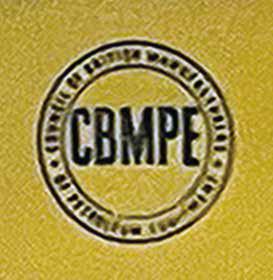
1980 Becoming the Energy Industries
Council
In the early 1980s CBMPE adopted a new name — the Energy Industries Council (EIC) — reflecting the expanding scope of its members, now working in power generation, nuclear, and alternative energy as well as oil and gas. The change mirrored global shifts: energy was no longer defined by a single resource but by the technologies and people connecting them.

In February 1943, thirteen
Broadening its member base and activities, the CBMPE changes its name to the Energy Industries Council (EIC) in 1981.

At the same time Brazil’s energy scene was changing rapidly. Democratic reforms and the discovery of rich offshore fields in the Campos Basin transformed Petrobras into a deepwater pioneer. In 1982 Rio de Janeiro hosted the inaugural Oil & Gas Industrial Trade Show , which would later evolve into Rio Oil & Gas — the largest energy exhibition in Latin America. The EIC began organizing collective British participation there soon afterward, helping UK companies showcase innovations such as subsea systems, flexible pipelines, and FPSO concepts that would later revolutionize offshore production.
By the end of the decade, EIC had established itself as a trusted conduit between British suppliers and South American operators — a position that would soon require a physical presence on the continent.
firms met in London to form the Council of British Manufacturers of Petroleum Equipment (CBMPE)
Praça da Sé in São Paulo, Brazil, 1979
1990
Liberalization and New Beginnings
The 1990s were a decade of opening. Across Latin America, privatization and deregulation reshaped entire industries. In 1997 Brazil enacted the Petroleum Law, ending Petrobras’s monopoly and inviting foreign investment for the first time in four decades. Global energy companies flooded into the country, bringing new technologies and demanding efficient, competitive supply chains.
In London, the EIC’s leadership recognized that it could no longer serve distant members purely through correspondence and trade fairs. Under the direction of then C EO Dai Somerville-Jones and with strong support from the Board, the Council announced an international expansion plan in 1999, after the expansion to Houston. Four regional offices were chosen — R io de Janeiro, Aberdeen, Singapore, and Abu Dhabi — each selected to anchor EIC’s global network in regions of strategic energy importance.
It was a small operation — eight rooms.
But it represented something much larger: a permanent bridge between UK technology and South American opportunity.
The decision to open in Rio was bold. Brazil was complex, bureaucratic, and linguistically challenging, but it also promised decades of growth. Preparations began with guidance from UK Trade & Investment (now DBT) and from the British Consulate-General. Local legal and accounting partners were engaged, and after months of paperwork, t he EIC Rio office officially opened its doors in 2000 .

Rio Oil and Gas, 2008
Rio Oil and Gas, 2008
Brazil Energy Conference, 2009
2000 - 2009
Liberalization and New Beginnings
The early 2000s were both exhilarating and daunting. Brazil was entering its pre-salt era, but doing business there required patience and persistence. Import duties were high, registration processes slow, and local-content requirements complicated procurement. The EIC’s mission, defined by its founding regional representative Dr. Ian Wilkinson, was to guide member companies through this maze.
The first years focused on building intelligence and trust. The Rio office began collecting detailed information on Petrobras projects, supplier qualification systems, and upcoming bids. Regular business presentations were introduced, where local experts shared opportunities about the market and explained everything from taxation to port logistics.. The office also coordinated inward missions of Brazilian officialsto the UK, encouraging collaboration with British manufacturers in Aberdeen, Newcastle, and London.
Recognizing the importance of proximity to offshore operations, EIC opened a second base in Macaé, known as Brazil’s “oil capital” . The move allowed visiting members to access the heart of Brazil’s offshore industry and meet service providers

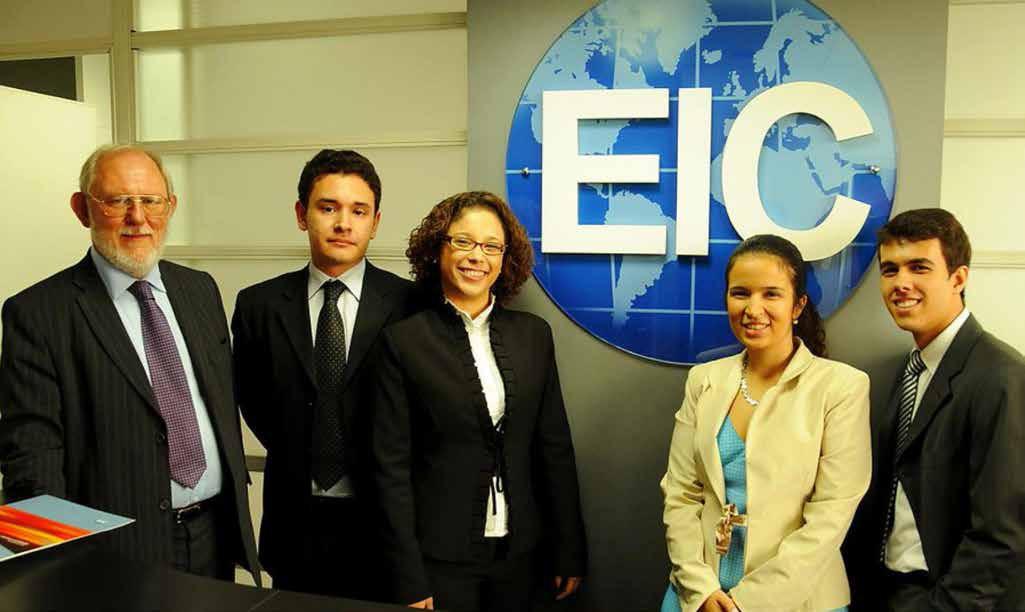
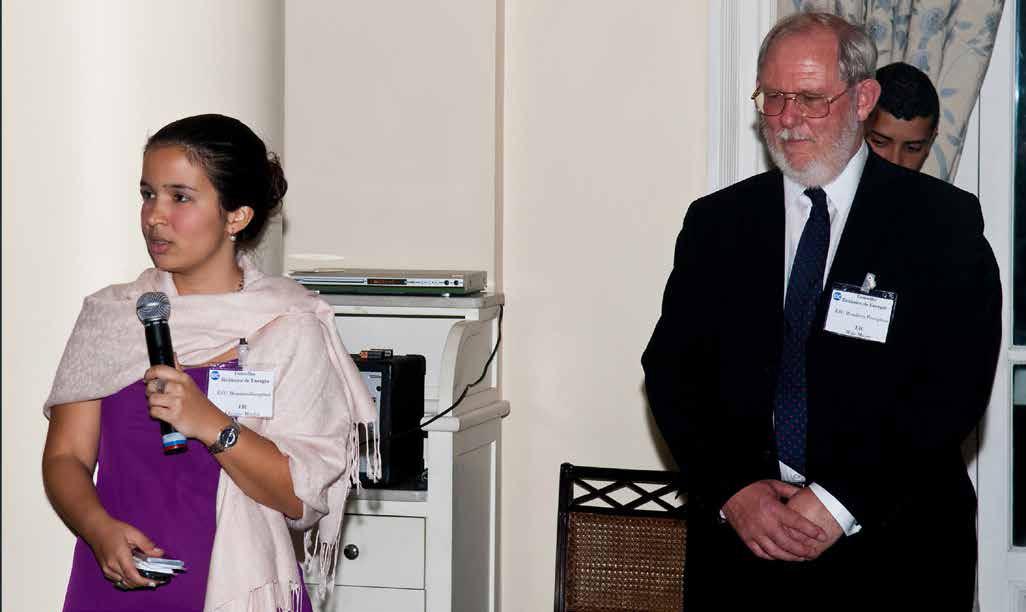
directly. By 2007, EIC’s South American network had grown to include partners in Argentina, Colombia, and Venezuela, as well as a growing roster of UK companies seeking footholds in the region.
In these formative years, many of the relationships that would define EIC South America for decades were forged — with Petrobras’s supply-chain teams, with Brazilian trade associations like ABIMAQ, and with the supportive diplomats of the British Consulate in Rio. Those alliances built the foundation for the organization’s next phase of growth.
2009 - 2016
Building Momentum and Community
By 2009, EIC South America had matured from a small satellite office into a respected regional hub. The team, now including Clarisse Rocha as Deputy Regional Manager and Pietro Ferreira as regional analyst,
Rio Office Opening, 2009
Rio Office Opening, 2009
Rio Office Opening Cocktail (Copacabana Palace), 2009



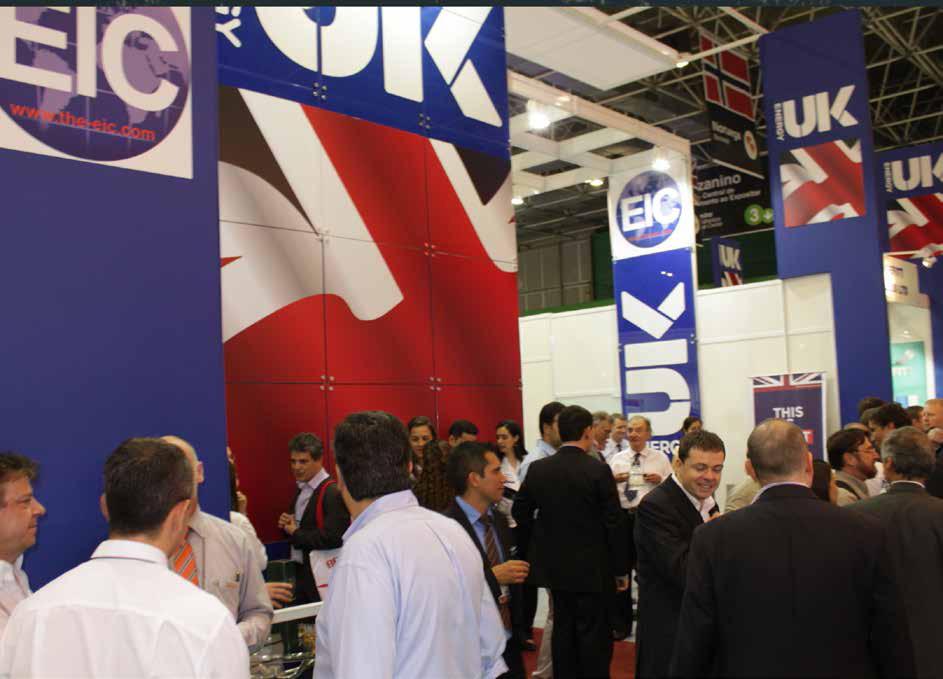
strengthened the organization’s strategic and operational presence. With renewed focus, the office relocated to modern premises in Rio’s business district, creating space for members to work, meet, and connect.
The period was one of expansion. Brazil was riding a wave of optimism: the discovery of the pre-salt reserves promised unprecedented growth, the 2014 World Cup and 2016 Olympics attracted global attention, and new suppliers poured into the country. EIC positioned itself as the guide for this international influx.
A comprehensive calendar of workshops and training courses was launched, covering crucial topics such as localcontent compliance, bidding procedures, FPSO technology, and the dynamics of Brazilian tax systems. These workshops attracted participants from both local and international companies, as well as government representatives.
Over the decade, EIC trained more than 1,500 professionals through over 70 events — a remarkable contribution to the region’s energy knowledge base.
To support its members’ networking needs, EIC created the Rio Samba & Gas event, a lively social gathering that blended Brazil’s festive culture with industry camaraderie. Held alongside major conferences, it became one of EIC’s signature events, drawing executives, engineers, and policymakers together in a relaxed environment that encouraged genuine connection.
During this period, EIC also expanded its mission beyond Brazil, organizing trade missions and delegations to Colombia, Peru, Argentina, Mexico, Venezuela, Trinidad and Tobago, and, later, Guyana. Each mission provided members with on-the-ground insights and direct access to local buyers. Even during the global oil downturn of 2014–2016, when projects were paused and investments delayed, EIC South America remained a steady presence, helping members adjust to new realities through information, collaboration, and resilience.
Trade Mission to Brazil including Rio and São Paulo, 2011
Pavilion at Rio Oil and Gas, 2012
Brazil Offshore (Macaé), 2009
2016 - 2021
Reinvention and Digital Transformation
In 2016 the Rio office underwent a complete transformation, both physically and strategically. The premises were renovated into a flexible, multi-purpose space featuring event rooms and shared desks. The concept, dubbed the EIC Launchpad, allowed member companies to establish a temporary base in Brazil without major overhead costs, now on improved facilities. This model quickly became a success story — many firms used it as their first step into the South American market.
Under Clarisse Rocha’s leadership as Regional Manager and later Head of the Americas, and with support from the UK’s Department for International Trade (DIT), EIC deepened its
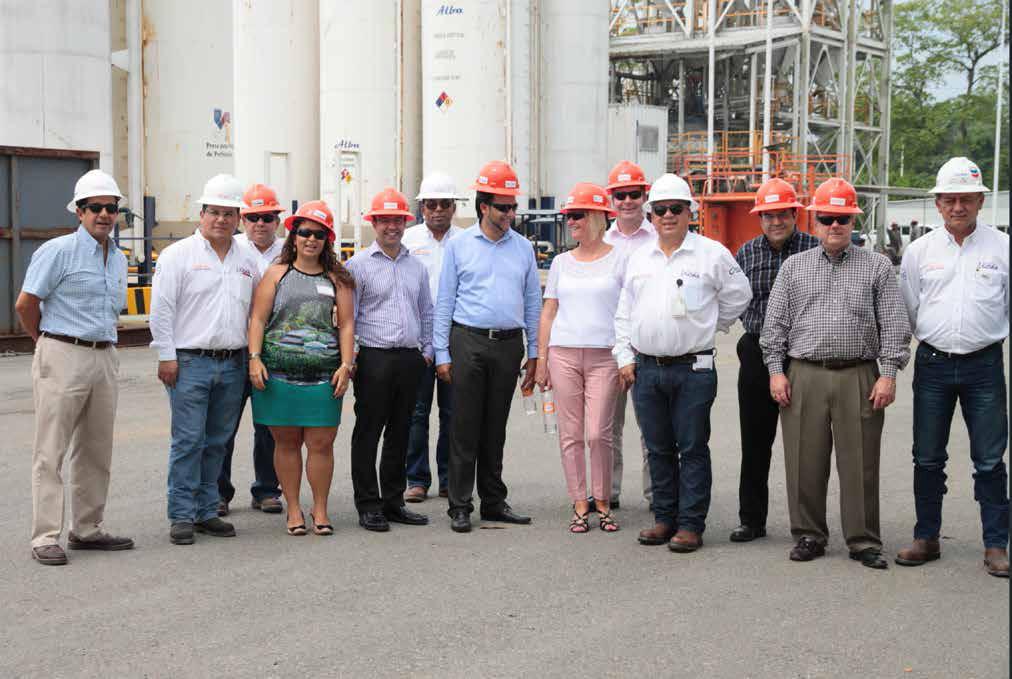
partnerships with Brazilian institutions. The organization co-hosted events with Petrobras, Shell, TechnipFMC, and Subsea 7, while maintaining strong relationships with associations such as IBP (Brazilian Petroleum Institute).
Then, in 2020, the COVID-19 pandemic brought unprecedented disruption. Offices closed, flights stopped, and the energy sector faced uncertainty. Yet EIC adapted with remarkable speed. Within weeks, the South America team had pivoted online, launching a series of webinars that attracted over 1,200 global participants. The format allowed EIC to connect members across continents and time zones, extending its reach far beyond physical boundaries.
The partnership with the British Chamber of Commerce in Brazil (Britcham) produced the Brazil–UK Energy Collaboration Forum, a digital series exploring topics from hydrogen and renewables to decommissioning and carbon capture. These sessions strengthened bilateral
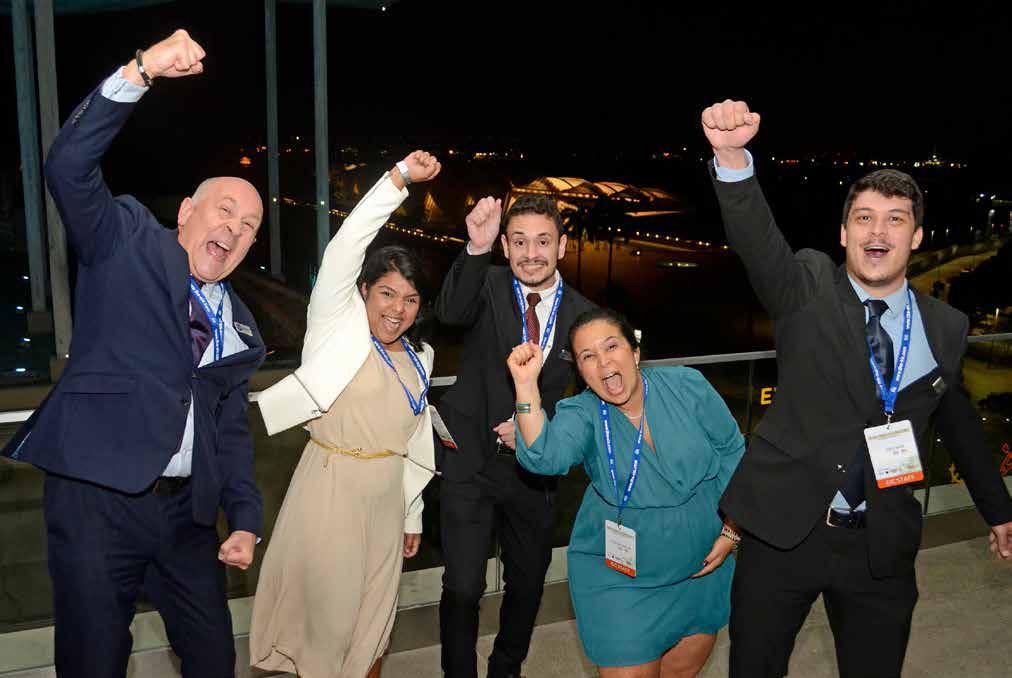
cooperation and positioned the EIC as a central voice in energy transition dialogue.
By the time restrictions eased, EIC had embraced digitalization as a permanent tool. The creation of EICTV, an online platform for streaming events and interviews, showcased innovation and adaptability, demonstrating that even in crisis, connection remained at the organization’s heart.

2022 - 2024
Renewed Energy and Expanding Reach
The return of in-person events in 2022 reignited the energy community’s spirit. EIC South America responded with new formats designed for engagement and inclusion. The most popular innovation was the Breakfast in Rio series — early-morning sessions combining presentations by operators, EPCs, and suppliers with informal networking. The idea came from the team’s desire to make business discussions more accessible, encouraging dialogue over coffee and conversation rather than only a formal conference.
The concept flourished. Seven editions in 2022 became 14 by 2024, with nearly 2,000 attendees across Rio, São Paulo, Macaé,
Trade Mission to Mexico, 2015
Brazil Energy Future Summit, 2018
and Belo Horizonte. Each session featured a mix of technical insight and practical guidance, with participants ranging from Petrobras and PRIO to smaller local suppliers.
EIC also expanded its social and diversity initiatives. The Women of Energy Lunch brought together female leaders from across the industry, celebrating progress and encouraging inclusion. The EIC Gala Dinner & Awards, held at iconic Rio venues overlooking Guanabara Bay, honored companies that excelled in innovation, diversification, and resilience.
Perhaps the most significant milestone of this period was the launch of EIC Connect Energy Brazil in 2023. The inaugural edition brought together more than 200 delegates and representatives from Petrobras, Equinor, bp, Shell, and other major players. The event offered oneto-one meetings, technology showcases, and strategic discussions about the future of Brazil’s energy mix. Its success ensured its place as a cornerstone of the regional energy calendar.
Throughout these years, EIC’s partnerships multiplied. Collaborations with ABIMAQ, APEX Brasil, and the Department for Business and Trade (DBT) amplified its influence, while new media alliances expanded visibility across Latin America. From Suriname to Argentina, the EIC brand became synonymous with connection, knowledge, and opportunity.

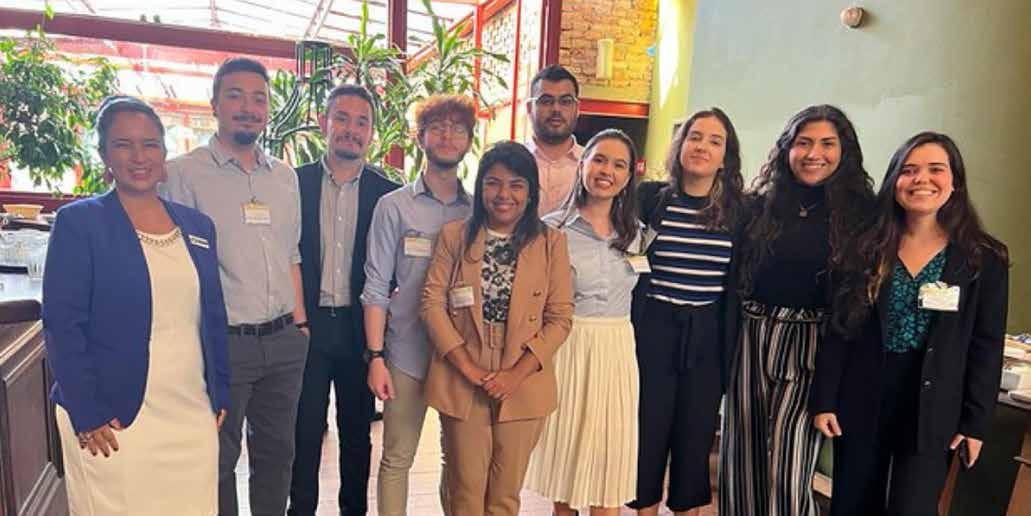
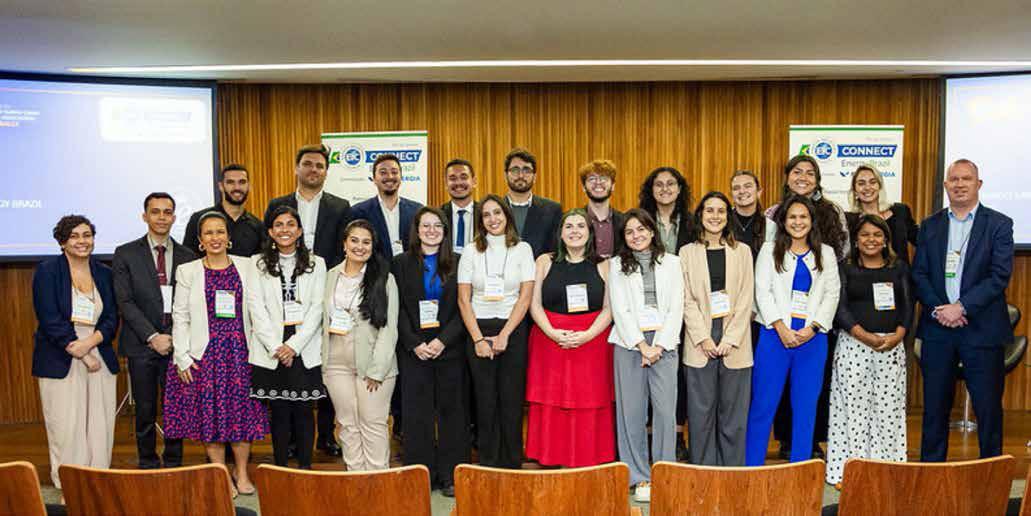
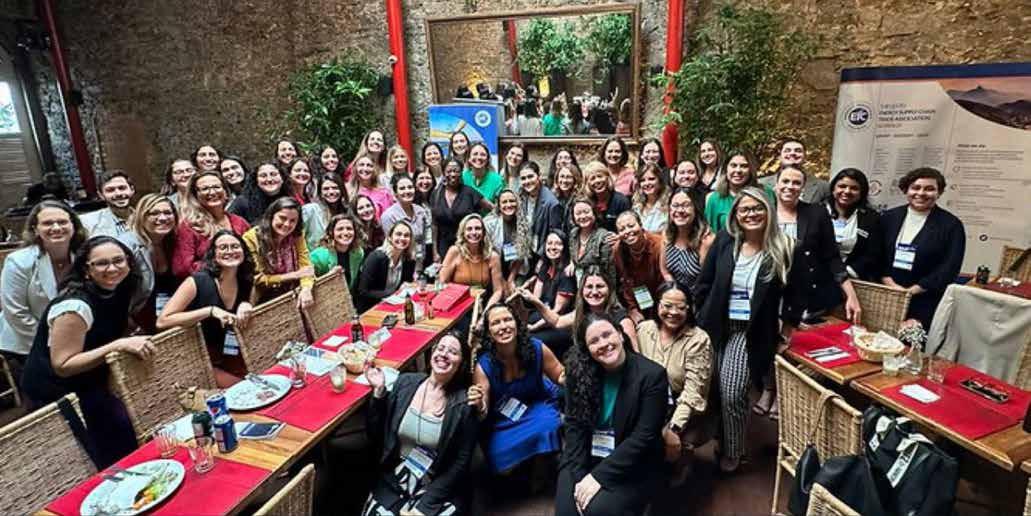
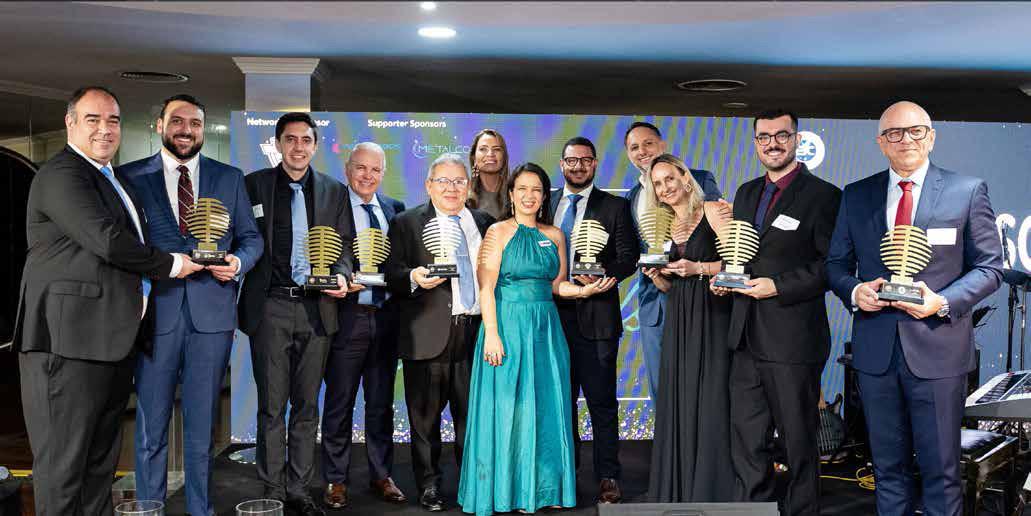

2019 - 2025 Intelligence, Membership, and Global Integration
While events and outreach were vital, EIC’s longterm strength rested on its data and intelligence capabilities. What began in the 2000s as a modest collection of Petrobras project notes evolved into one of the world’s most comprehensive energy databases. By 2025, EIC’s DataStream CAPEX platform tracked nearly 2,000 active and upcoming projects across South America — from offshore oil fields and onshore wind farms to hydrogen plants and carbon-capture hubs.
EIC’s intelligence analysts in Rio built close relationships with industry players, feeding local insights into global systems. Their work helped member companies identify opportunities early and make informed decisions. Brazil, in particular, became one of the best-mapped energy ecosystems in the world, with more than 3,500 facilities and over 1,400 suppliers catalogued in the EIC’s digital tools.
A crucial change came in 2019, when EIC opened membership to companies of all nationalities, not just British companies as it had been for the previous 76 years. This inclusive step sparked rapid growth in South America, where domestic
Breakfast with Petrobras & Modec, 2022
EIC Connect Energy Brazil, 2023
Lunch Women of Energy with Transpetro and Shell, 2024
EIC South America Regional Awards, 2024
champions like PRIO and Ipiranga joined the network alongside traditional UK-based members. To foster collaboration, EIC created the South America Members Committee , which met under Chatham House rules to share market insights and policy feedback.
The Rio office also became a global operations hub , hosting teams responsible not only for regional events and data, but also for international marketing, digital communications, and trade services.
2023 - 2025
Partnerships, Recognition, and a Vision Forward
Winners from these regional categories later competed in the global EIC Awards , showcasing Latin American talent on an international stage. The awards evolved into the annual EIC Gala Dinner , blending celebration with purpose as members and partners toasted shared achievements.
Between 2020 and 2025, the staff expanded from five to more than fifty professionals, reflecting the office’s role as one of EIC’s most dynamic global centers.
The EIC’s ability to build partnerships and celebrate collective success defined its recent years. In 2023, the organization marked the 80th anniversary of the EIC globally with a grand reception. The event brought together leaders from Petrobras, Shell, and the UK Department for Business and Trade, highlighting the enduring value of cooperation between nations and industries.
That same year, EIC introduced the South America Regional Awards , recognizing excellence in innovation, diversification, and community engagement.
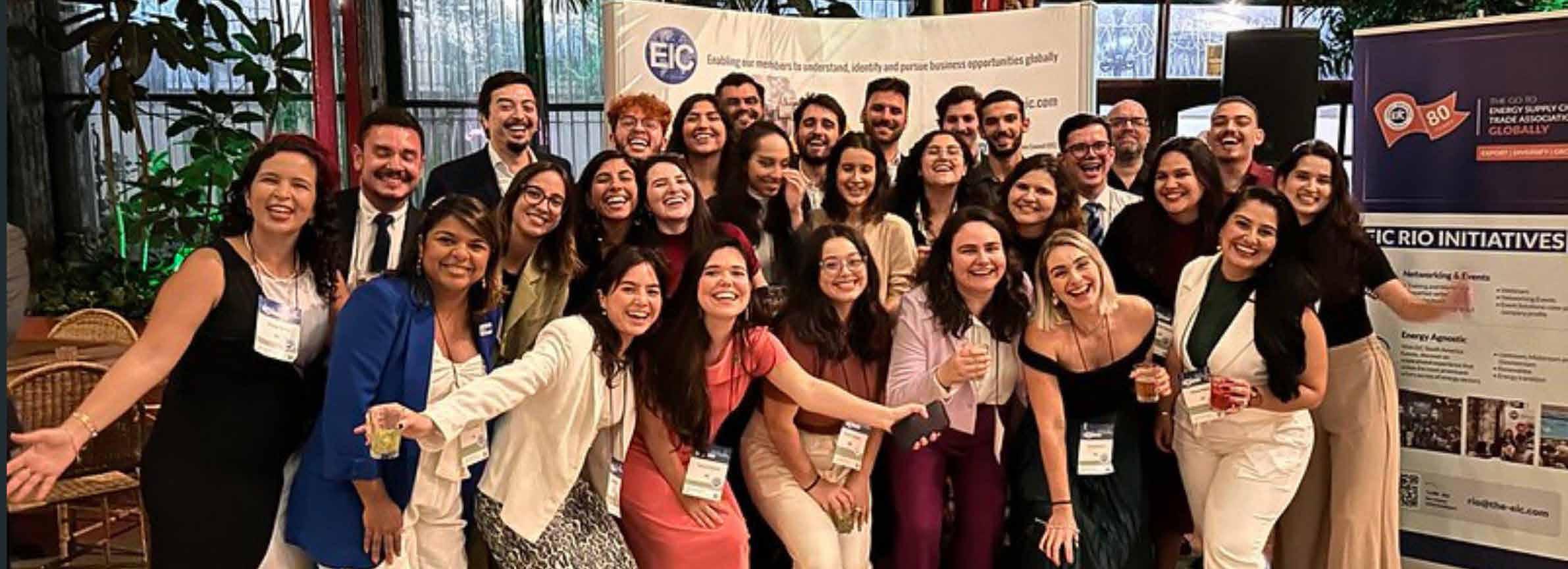
To support smaller enterprises, the team created the EIC Business Lounge at major exhibitions — a cost-effective showcase space where small and medium-sized companies could meet buyers under the EIC banner. The initiative reflected the Council’s long-standing commitment to inclusion: ensuring that every company, regardless of size, could access opportunity.
As the organization looked ahead to its 25th anniversary in Brazil, it launched the EIC Global Ambassadors Programme , recognizing individuals and member companies that had made outstanding contributions to the Council’s mission. Among them were long-time advocates and partners who had supported EIC’s growth from its early Rio office to its present-day role as a regional powerhouse.
EIC 80th Anniversary with Petrobras & Shell + Celebration Cocktail, 2023

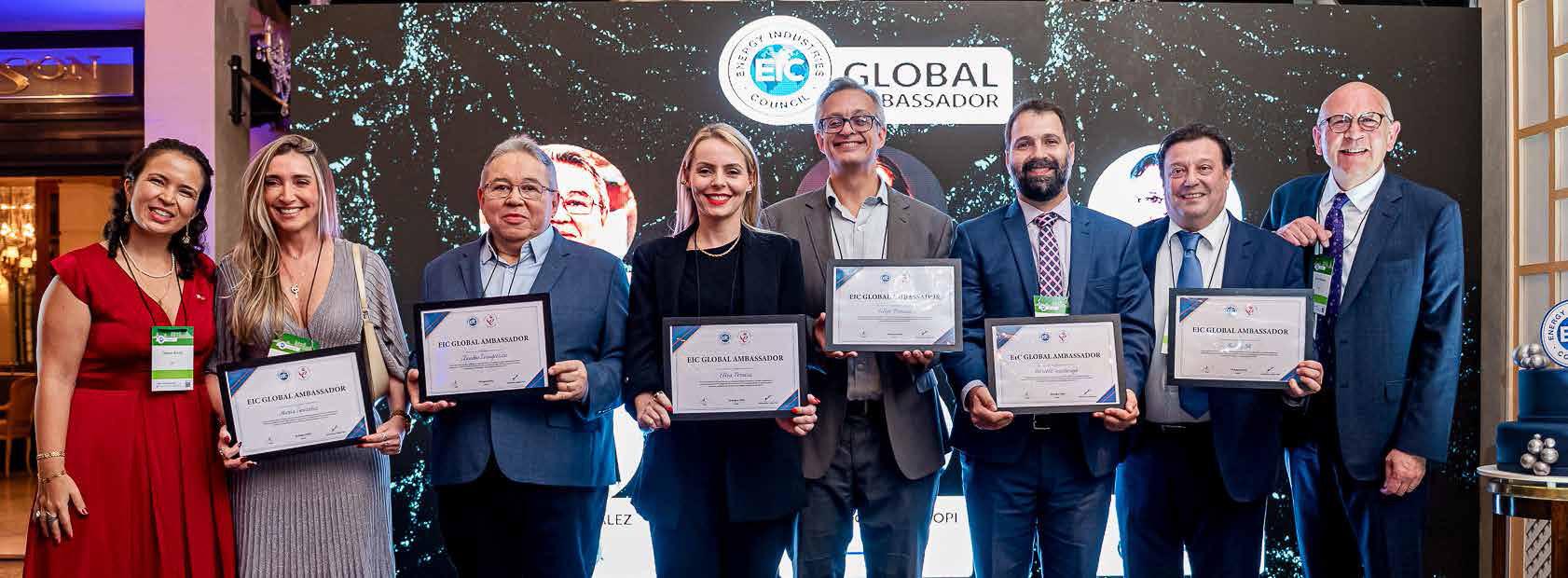
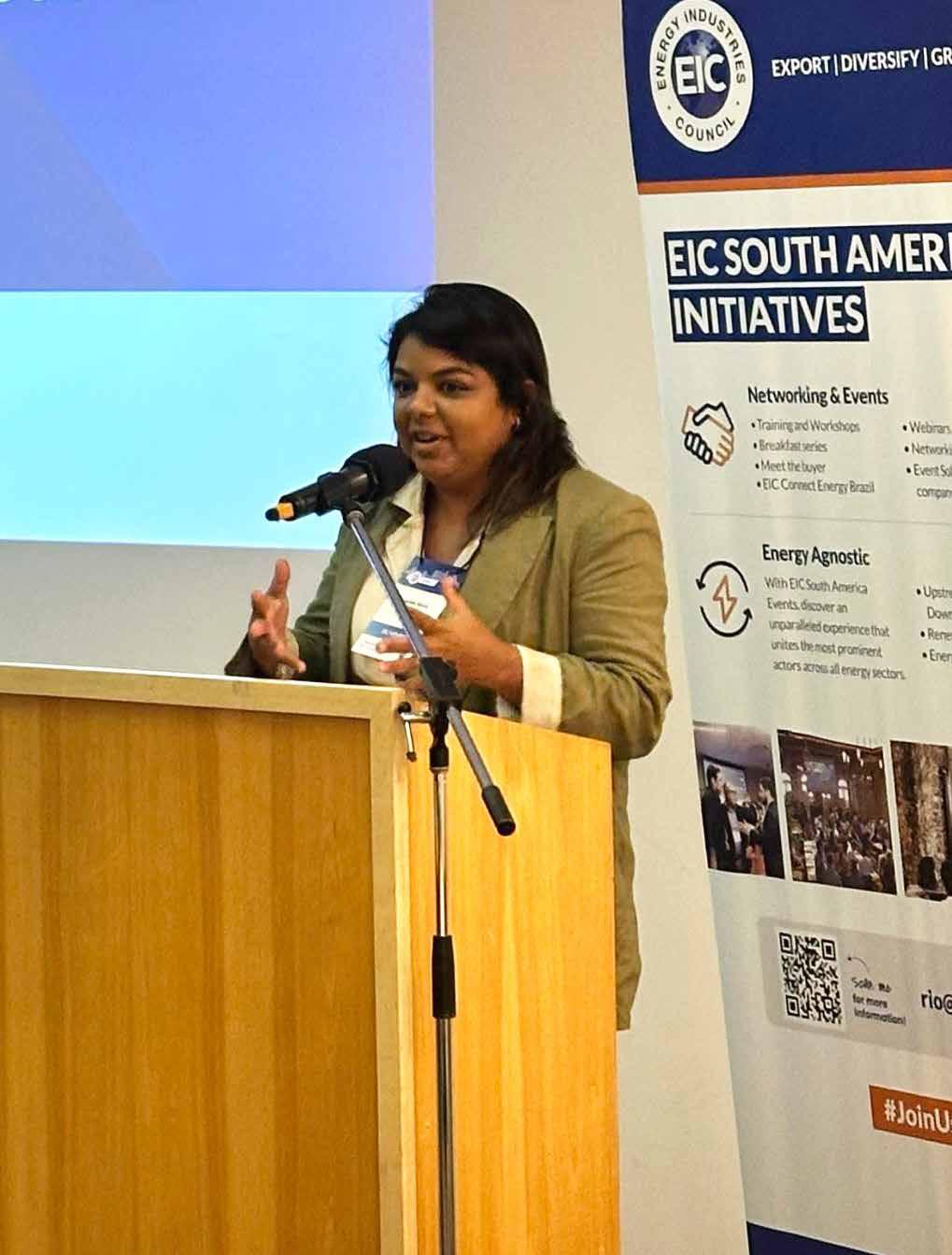
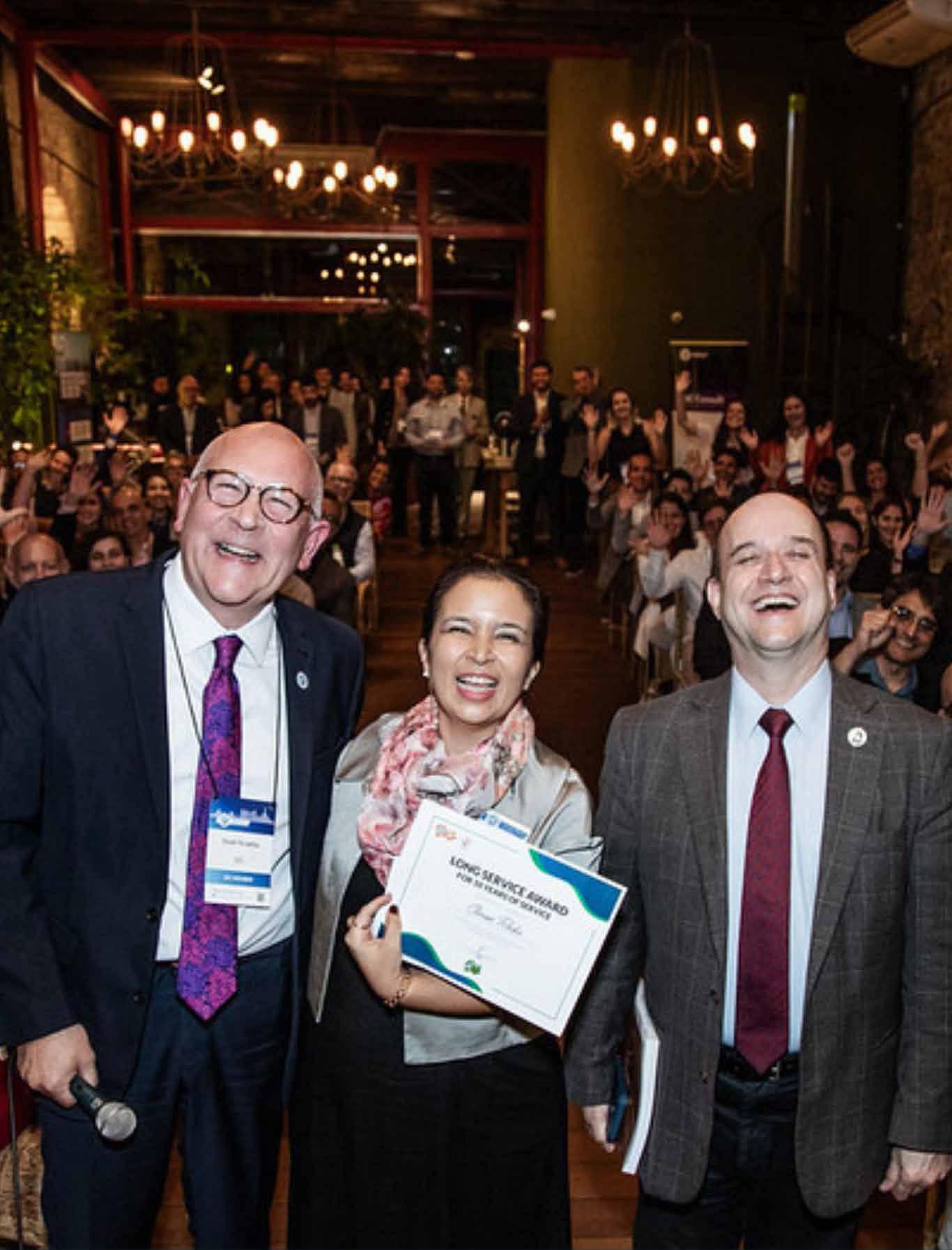
Looking Ahead
EIC South America is getting ready for another exciting chapter. One of our main goals is to grow our network through the new entry-level membership, called Network Membership, which lets companies enjoy local networking opportunities before diving into our full suite of data and intelligence tools. It’s a great way for new players to get involved and start building connections.
Our events continue to be a major highlight. In 2023, we welcomed more than 2,000 professionals to EIC gatherings — and those numbers kept climbing through 2024 and 2025. The plan now is to keep a busy and diverse agenda that brings together developers, operators, and contractors to discuss new projects and explore fresh topics like data centers and digital infrastructure.
Looking ahead to 2026, we’re full of new ideas. The Energy Procurement Summit will bring buyers and suppliers face to face, while the popular Breakfast in Rio series will expand to Macaé and São Paulo, connecting even more professionals across Brazil.
As we grow, our focus remains the same — helping people connect, share knowledge, and create opportunities that strengthen the energy community throughout South America.
EIC South America Regional Awards, 2023
EIC Global Ambassadors, 2025
São Paulo Breakfast: Opportunities in O&G w/ Tenenge and Transpetro, 2025
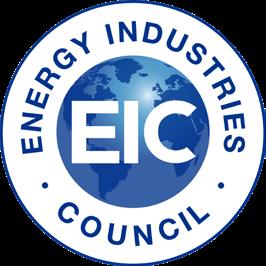

Conclusion: A Legacy of Connection and Collaboration

From a post-war trade delegation in 1946 to a multi-sector innovation network in 2025, the journey of the Energy Industries Council in South America is a story of persistence, adaptability, and human connection. It is the story of professional leaders, who nurtured relationships and championed diversity; and countless members, partners, and collaborators who believed in the power of shared knowledge.
Across eight decades of history and twentyfive years of presence in Brazil, the EIC has grown alongside the region’s energy evolution — from oil and gas to renewables, hydrogen, and carbon capture. Its purpose remains clear: to help the supply chain thrive through information, connection, and opportunity.
Today, EIC South America stands as a global hub within the organization — dynamic, diverse, and future-oriented. Its impact is measured not only in projects and partnerships, but in the trust and community it has built.
As the world accelerates toward a low-carbon future, the same spirit that guided those first trade delegations continues to drive the EIC forward: a belief that progress happens when people connect — across borders, across industries, and across generations.
EIC 25 Years Anniversary in Rio de Janeiro, 2025
